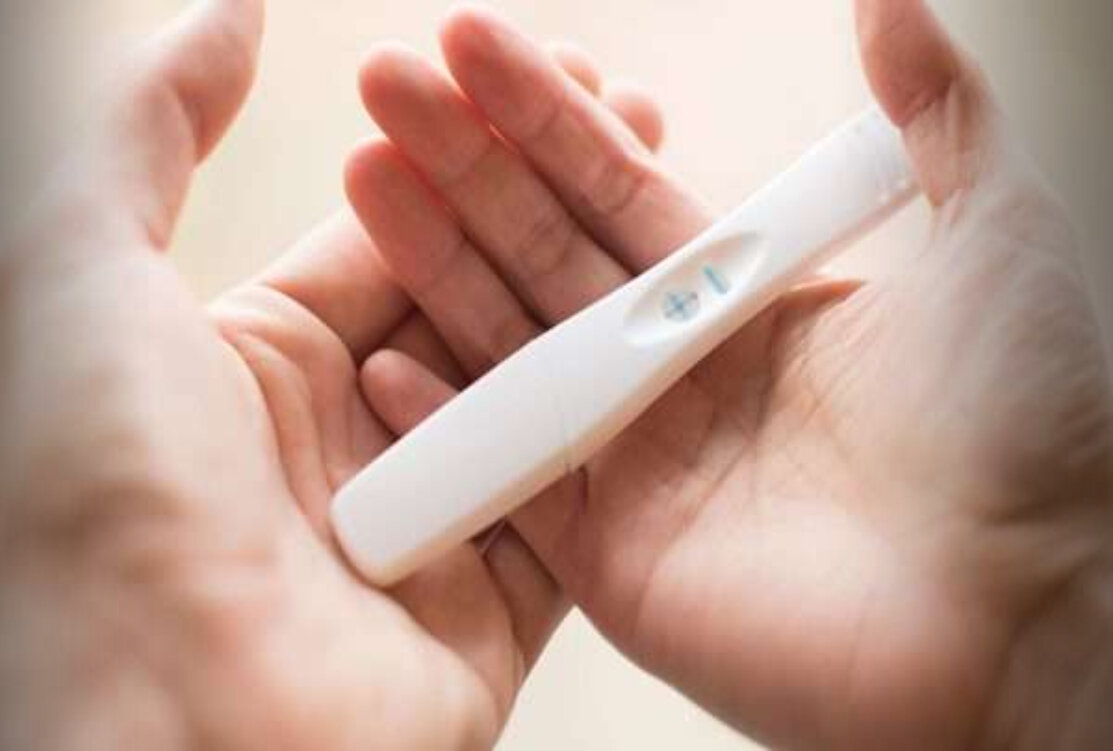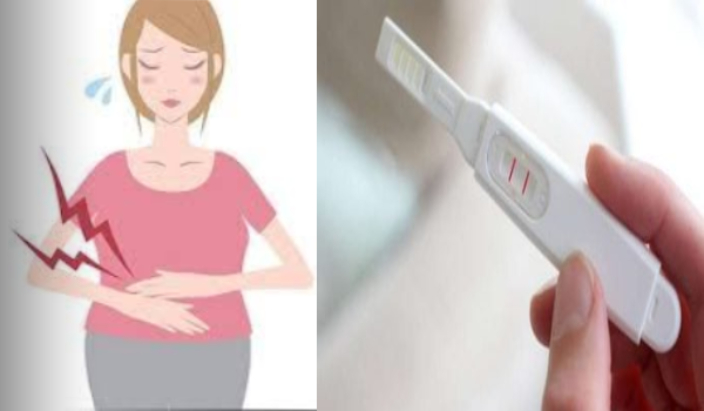
15 signs that you are pregnant in the first weeks
Many of the signs a woman during marriage
can show that she is pregnant in the first weeks are similar to routine
premenstrual harassment.
In the fashion world web, address these symptoms or signs that
often, if most of them meet, you are a pregnant woman, and you can know that
you are pregnant before going to the doctor and conducting a real examination.
15 tips to know that you are pregnant in the first weeks
1. Swelling in the
breasts
Hormonal changes at the beginning of pregnancy may make breasts feel
painful, or feel that the breasts are larger or heavier, in addition to the
possibility of noticeable veins appearing in the breasts, due to the increase
in blood volume in that area.
Breast sensitivity tips: Wear a supportive, wire-free bra, wear loose-fitting clothes
and try applying a cool washcloth to your breasts when you're feeling sore or
having a warm bath.
2. Flatulence
Progesterone can cause major changes in your body, and it causes your
muscles to relax and this includes the muscles of your intestines, so it can
slow down your digestion. This causes bloating and frequent burping.
3. Fatigue
Tiredness and fatigue also rank high among the early pregnancy symptoms.
During the early stages of pregnancy, progesterone levels rise.
Progesterone can make you want to sleep all day, at the same time low blood
sugar levels, lower blood pressure, and increased blood production can drain
your energy during pregnancy.
In a study published in the journal Sleep Medicine, which reported the
average hours of sleep during pregnancy, it was discovered that women slept an
average of 7.01 hours on the first night in the first two months of pregnancy,
this increased slightly in the third and fourth months, but then decreased,
ending with 6. 31 hours a night after 8 months of pregnancy.
4. Protrusion of
the veins
When the uterus expands to make room for the fetus, pressure can be
placed on the inferior vena cava, which is the large blood vessel that extends
to the right side of your body. Genital areas or hemorrhoids may develop.
Read also: Thin Women: How do you choose the right
clothes for you?
5. Colic or slight
bleeding
Sometimes a small amount of spotting or vaginal bleeding is one of the
first symptoms of pregnancy, known as implantation bleeding, and it can happen
when a fertilized egg attaches to the uterine lining, about 10 to 14 days after
fertilization. This type of bleeding is usually a little earlier and lighter in
color than a normal period and doesn't last for long.
6. Nausea with or
without vomiting
Morning sickness, which can strike at any time of the day or night, is a
classic symptom of pregnancy. For some women, nausea begins two weeks after
conception.
Although the exact cause of morning sickness is not clear, it appears to
stem from a rapid rise in estrogen levels, causing the stomach to empty slowly,
or fluctuations in estrogen levels, changes in blood pressure, and all the
physical changes of
pregnancy may be major factors.
Pregnant women also have a high sense of smell, so different smells such
as cooking food, perfume, or cigarette smoke may cause waves of nausea in early
pregnancy.
Tip: Eating
ginger or drinking ginger tea can help most expectant mothers reduce this
feeling. In extreme cases, talk to your doctor about anti-nausea medications
that are perfectly safe for you even during the first months of pregnancy.
7. Food aversion or
cravings
When you're pregnant, you may find yourself refusing to eat certain
foods, or having a strong craving for certain foods as well.
Like most other pregnancy symptoms, these food preferences can be
attributed to hormonal changes, especially in the first trimester.
8. Headache
At the beginning of pregnancy, increased blood circulation caused by
hormonal changes may lead to frequent mild headaches, and this is one of the
symptoms that indicate that you may be pregnant in the first weeks.
Tips to get rid of pregnancy headaches:
·
Get more sleep or rest and relax.
·
Pregnancy yoga classes or other exercises.
·
Eat regular and balanced meals.
·
Apply a warm washcloth to the eye and nose area if it
is a sinus headache.
·
Apply cold compresses to the back of your neck, take a
shower, or use heat packs.
·
Neck and shoulder massage.
9. Constipation
Constipation is one of the symptoms that show that you are pregnant in
the first weeks, “the high levels of the hormone progesterone during
pregnancy contribute to slowing the movement of the intestine,” which means
that pregnancy hormones slow down the digestion process, which may lead to
constipation.
Tips to reduce constipation:
·
Eat plenty of fiber and green leaves.
·
Drink plenty of water.
·
See your doctor before taking any of the laxatives.
The of the fashion world web wishes you a pleasant time
reading the rest of the article
Read also: 11 Tips to get the safe pregnancy
10. Mood swings
The flux of hormones in your body early in pregnancy can make you
emotional and unusually crying. Mood swings are also common in pregnancy
symptoms, especially in the first trimester.
11. Weakness and
dizziness
When blood vessels dilate and blood pressure drops, you may feel dizzy,
and in early pregnancy, fainting may also occur due to low blood sugar.
12. Metallic taste
in the mouth
Many women find that their taste is affected in the first few weeks of
pregnancy, and some women describe it as a metallic taste. This taste is called
dyshidrotic, and it is caused by pregnancy hormones, especially estrogen. It is
not dangerous and usually disappears after the first three months of pregnancy.
Studies say this usually improves after the first trimester of pregnancy,
but if you're looking for ways to combat, you can try:
·
Eat mint or sugar-free gum
·
Eat foods rich in citrus fruits or vinegar
13. Stuffy nose
Sinus obstruction is often an early sign of pregnancy. Increased levels
of estrogen can cause the sinus passages to swell and produce more mucus.
If you think you may be pregnant, be sure to talk to your doctor before
taking any decongestants.
14. High body
temperature
One of the clues that you may be pregnant in the first weeks is a
rise in body temperature. Basal body temperature is the temperature in your
mouth when you wake up in the morning. This temperature increases slightly
shortly after ovulation and remains at this level until your next period.
If you have taken your basal body temperature to determine when you
ovulate, it could mean that it has been rising for more than two weeks; You are
pregnant.
Read also: benefits of ginseng for women and its
uses and damages
15. A missed period
Perhaps the most obvious early pregnancy symptom, when you miss your
period, make sure you're pregnant.
Are the symptoms of pregnancy in the first month of the firstborn
different?
Indeed, the symptoms of pregnancy in the first month of the virgin are
different and multiple, as the woman experiences pregnancy for the first time,
and feels feelings and symptoms that she has not experienced before, and
therefore it is a strange period for any woman, no matter how slight or severe
the symptoms are.
But usually, the symptoms of pregnancy in the first month of the
firstborn are as follows:
1. seizures
When the egg implants in the lining of the uterus, it causes a drop of
blood, usually about 6 to 12 days after fertilization.
2. Nipple discoloration
Due to changes in hormone levels in the body, the color of the nipple is
changed.
3. Feeling tired
Feeling tired, due to low blood pressure or low blood sugar, due to high
levels of the hormone progesterone, most women suffer in the early hours of the
morning from feeling uncomfortable, and the beginnings of this symptom occur
due to the change of pregnancy hormones.
4. Increased urine
Hormonal changes in the body of a pregnant woman increase urine
production, increase blood flow and flow to the kidneys, causing the bladder to
fill up quickly, and this is a clear sign of pregnancy in the first child.
5. Body temperature
One of the most obvious symptoms of a firstborn pregnancy is the initial
increase in body temperature.
This was an article explaining the signs that you are pregnant
in the first weeks. The of fashion world web offers many topics about women
and fashion. You can read at least 200 articles on this site.



0 Comments